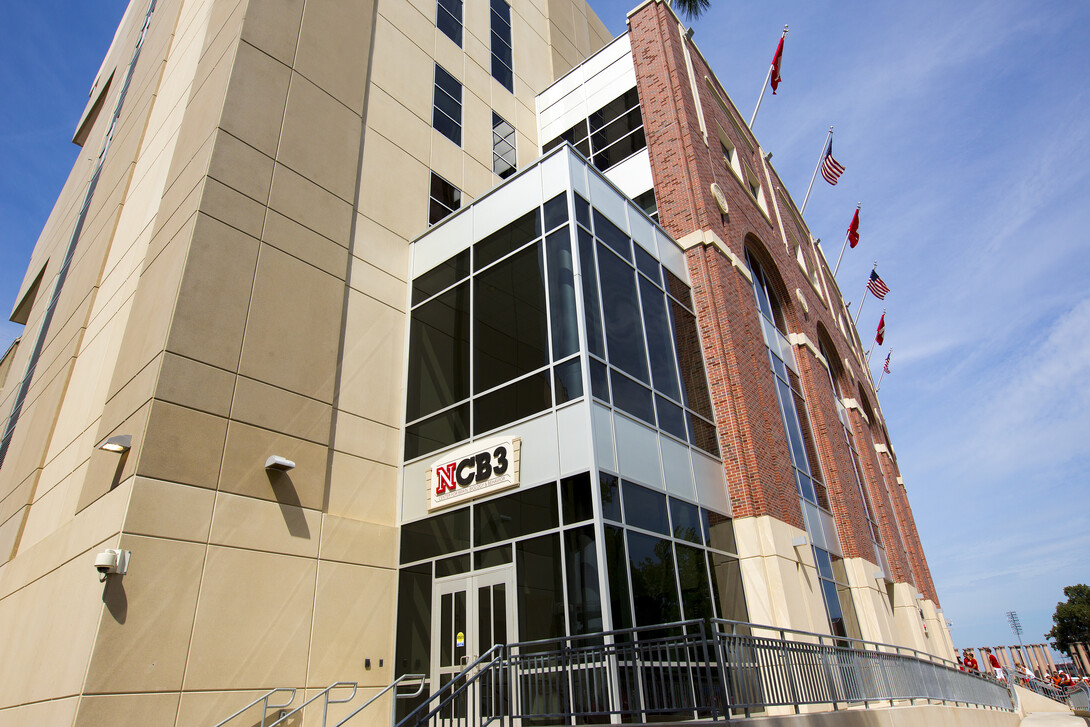
Following a national search, Aron Barbey was selected as the new director of the Center for Brain, Biology and Behavior at the University of Nebraska–Lincoln. His tenure begins Aug. 14.

Barbey, also named the Mildred Francis Thompson Professor of psychology, joins Nebraska from the University of Illinois at Urbana-Champaign. At Illinois, Barbey was professor of psychology, neuroscience and bioengineering and director of the Decision Neuroscience Laboratory at the Beckman Institute for Advanced Science and Technology.
Barbey is an internationally recognized scientist whose research has made significant contributions to understanding the neural basis of human intelligence, the ability to find solutions to the diverse problems we encounter in life. His research suggests that intelligence emerges from the network organization and dynamics of the human brain and applies this knowledge to design novel interventions to promote cognitive function and brain health.
Since its formation in 2011, his research group has earned more than $25 million in federal and private research funding.
“The university is extremely fortunate to gain a CB3 director with the research stature and leadership experience that Aron brings,” said Bob Wilhelm, vice chancellor for research and economic development. “With his expertise in neuroscience and proven ability to marshal interdisciplinary research teams, we’re confident Aron will elevate CB3 to the next level and expand its national profile.”
As director, Barbey will collaborate with colleges, departments and research centers across the University of Nebraska system to advance research in the cognitive, computational and brain sciences. He will work with faculty to build multi-faceted interdisciplinary teams to pursue external grant funding, and has significant experience in this area, having led large research themes, interdisciplinary initiatives and team projects at Illinois.
“My interest in the Center for Brain, Biology and Behavior at UNL stems from the vibrant intellectual community and outstanding academic reputation of UNL, which is committed to research and teaching of the highest quality and has a distinct focus on empowering lives of action and purpose,” Barbey said. “As director, I look forward to promoting thoughtful innovation within CB3 and helping to accelerate advances in the psychological and brain sciences that will benefit human health and society.”
Barbey will expand CB3’s vision to match the accelerating pace of discovery in neuroscience. Since the center’s launch in 2013, rapid technological advances have enabled researchers to visualize individual brain cells with greater precision, elucidate their structural and mechanical properties, and create detailed maps of the brain’s intricate network of connections.
“CB3 is at the forefront of this new era in neuroscience,” Barbey said.
Barbey’s research, which he will continue as part of CB3, has received support from the White House BRAIN Initiative, the Office of the Director of National Intelligence, the Department of Defense, the National Institutes of Health and the National Science Foundation, in addition to private industry partners.
His chief research accomplishment to date is developing the Network Neuroscience Theory, a new framework for understanding the neural basis of human intelligence. While traditional theories emphasize the importance a specific brain region or cortical network, Barbey’s theory posits that systemwide brain network dynamics account for the range of mental abilities underlying intelligence. In 2019, he received the prestigious Mensa Foundation Prize for Best Scientific Discovery in the Field of Intelligence for this work.
Barbey’s research has also motivated the design of neuroscience-based interventions to enhance cognitive function and brain health. His research group has conducted randomized controlled trials in healthy, clinical and military populations to establish multi-modal interventions that incorporate skill-based cognitive training, non-invasive brain stimulation, mindfulness meditation, physical activity and aerobic fitness training, and diet and nutrition.
With funding from the DOD’s Defense Advanced Research Projects Agency, Barbey is currently applying these methods to establish personalized training, readiness and recovery programs for elite military service members. His team is also developing computational modeling methods to optimize these interventions through research within DARPA’s AI Next Campaign.
He was recently selected to join the Defense Science Study Group, a highly selective program directed by the Institute for Defense Analyses and sponsored by DARPA. The program helps leading scientists apply their expertise to U.S. national security challenges.
Barbey serves as editor of the forthcoming “Oxford Handbook of Cognitive Enhancement and Brain Plasticity,” and “The Cambridge Handbook of Intelligence and Cognitive Neuroscience.” He’s authored more than 100 publications, including a recent article in Cerebral Cortex — his first at Nebraska.
Barbey holds a doctorate in psychology from Emory University and completed a research fellowship in cognitive neuroscience at the National Institute of Neurological Disorders and Stroke in 2011.
Barbey succeeds Cary Savage. The Center for Brain, Biology and Behavior is an interdisciplinary research center that brings together faculty within the cognitive, computational and brain sciences. It’s home to state-of-the-art facilities, including the Functional Magnetic Resonance Imaging Facility. The center, housed at Memorial Stadium, has a unique partnership with Nebraska Athletics.







